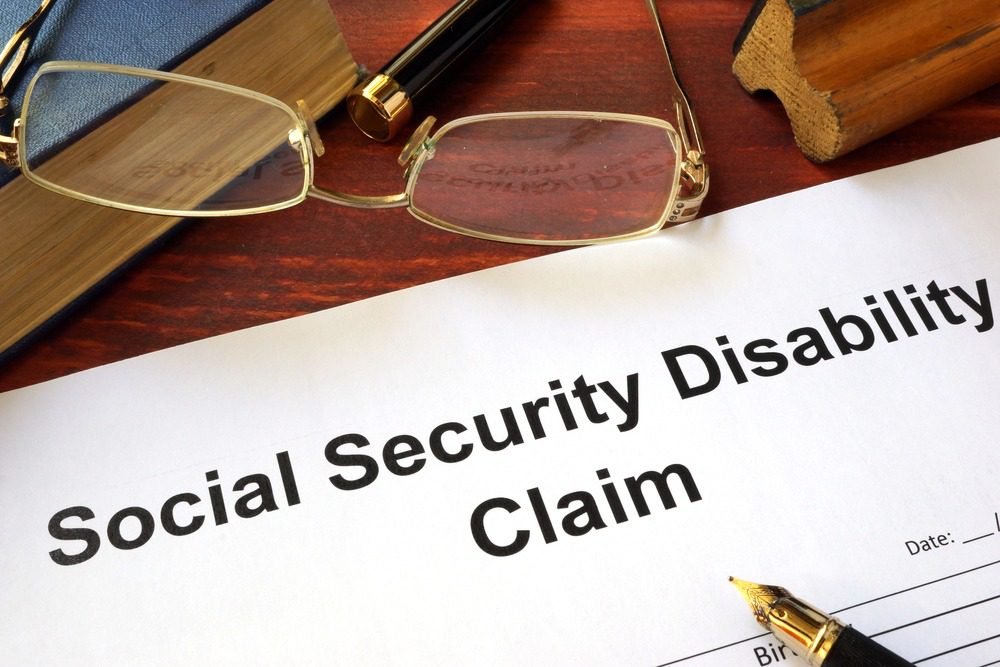The question of eligibility for Social Security Disability Benefits or (SSDI) or Supplemental Security Insurance (SSI) will generally be asked by an individual who is reaching an age where physical conditions are impairing their ability to work, by an individual who is dealing with a new physical or mental disability which impedes his or her ability to maintain employment, or by a person who is charged with the care of an individual with a disability.
As a general overview, 1 in 4 Americans or 61 million individuals report a disability, according to the US department of Health and Human services. However, as of the last census in 2016, only 10 million people were receiving Social Security disability benefits as disabled workers, disabled widow(er)s, or disabled adult children. The majority (86.8 %) were disabled workers, 10.7 % were disabled adult children, and 2.6 % were disabled widow(er)s. Approximately 31% of those receiving disabled worker benefits (SSDI) have mental impairments as their disabling condition and 32% have musculoskeletal conditions, with the rest of cases involving assorted disabilities.

Reason I might be denied for social security benefits
The reality is that the most claims are denied, almost 67% of applications, to be specific. For most, the process requires a great deal of time, re-application and patience. There is a very complex reconsideration and appeals process, but if you have the help of a disability advocate or lawyer, there is a strong chance you will be rewarded with the financial assistance you need.
SSI and SSDI are not mutually exclusive, meaning you may be eligible to receive both. Additionally, there are numerous other state and federal benefits for which you may be eligible if you have the patience to wade through the process of applications and appeals. In fact, SSDI benefits have a much higher approval rate on average than SSI. The claim examiners are more likely to award applicants who have a long work history, and those who worked are more likely to have had medical insurance and access to medical care. It is critical that your doctor be engaged in the process.
The reasons for being denied are complex, but here are general categories:
1. You filed your claim incorrectly
The SSA receives an incredibly high number of claims. There are over 10,000 new seniors every week now. If an application has errors, is incomplete or is not specific enough regarding medical evidence, it will be rejected outright.
2. You are making too much income
The primary reason SSDI (which is the disability insurance designed to help those who are losing the ability to work) is denied is due to an individual working over a specific limit, and who is considered “substantially gainfully active” or SGA. This means the individual earns too much money to be considered disabled. Applicants are not allowed to earn over $1,220 per month, as of 2019.
SSI is a means-based program. It isn’t based on your work history, but rather your financial need, and as a needs-based program there are strict income limits in order to qualify. For adults that income limit is $783 per month for an individual or $1,033 per month for a couple. You must be making less than this in order to be eligible to receive SSI benefits and you cannot be working when initially filing for SSI (you may, however, continue to work after receiving the award, up to the limits described above).
3. You have too much money in the bank
In order to be eligible for SSI your personal resources as an individual must be below $2,000 as an individual, or $3,000 for you and your spouse. Resources are generally described as savings in a bank, cash, stocks or bonds, 2nd vehicles, or a 2nd home.
4. The term of your disability is not long enough to qualify, or is not severe enough
The Social Security Administration must believe that your illness or disability or impairment is severe enough that it will last more than 12 months or will result eventually in your death. Your case will be examined by disability determination services (DDS), which is a state level agency provided for medical review to determine eligibility. Additionally, if DDS determines your impairment can be managed by specific drugs or therapies, it also is likely to be denied.
5. You do not meet what is called the “listing of impairments”
The listing of impairments comes from federal regulation 20 CFR part 4 of 4. The purpose of the listings of impairments is to describe the degree of medical severity required to be eligible, and it covers the majority of known severe impairments. If you don’t match the criteria on this list you may not be considered disable. However, if your specific impairment doesn’t match an existing impairment on the list then you may still be eligible and qualified as “equaling a listing”.
6. You are determined to still have the ability to do your prior job
The reviewers for your case will assess whether or not you have what is called “residual functional capacity.”
7. You are determined to be able to do other types of work
DDS may determine you are able to functionally do other types of work. Generally if you are over 50 or 55, there are exceptions on an expectation to be retrained, but if DDS determines you are able to find other work, they can deny your claim. Remember, the SSA does not help you find a new job, they simply disqualify you on the basis of being able to work.

Receiving legal assistance for filing your claim
When life change occurs it can be a frustrating and confusing time for an individual and their family or caregivers. Web searches and well meaning friends can often lead to a bewildering maze of false expectations or wasted efforts. Hiring a disability lawyer not only greatly increases your chances to be approved, but makes the process much less stressful and time consuming.
There is no risk in hiring a disability lawyer. Federal law requires them to work on what is called a “contingent basis,” meaning they are paid only if you are awarded your claim, and they are only paid from what is called “back pay” and are limited to a maximum payment amount based on your back pay award (it can take up to several years to receive your claim).
Statistically you have a much better chance of being approved if you allow an attorney to work on your behalf. The experienced team at Marken Law Group will fight for your benefits! We don’t get paid unless you win. Call us today at 509-879-4626 to get started.

